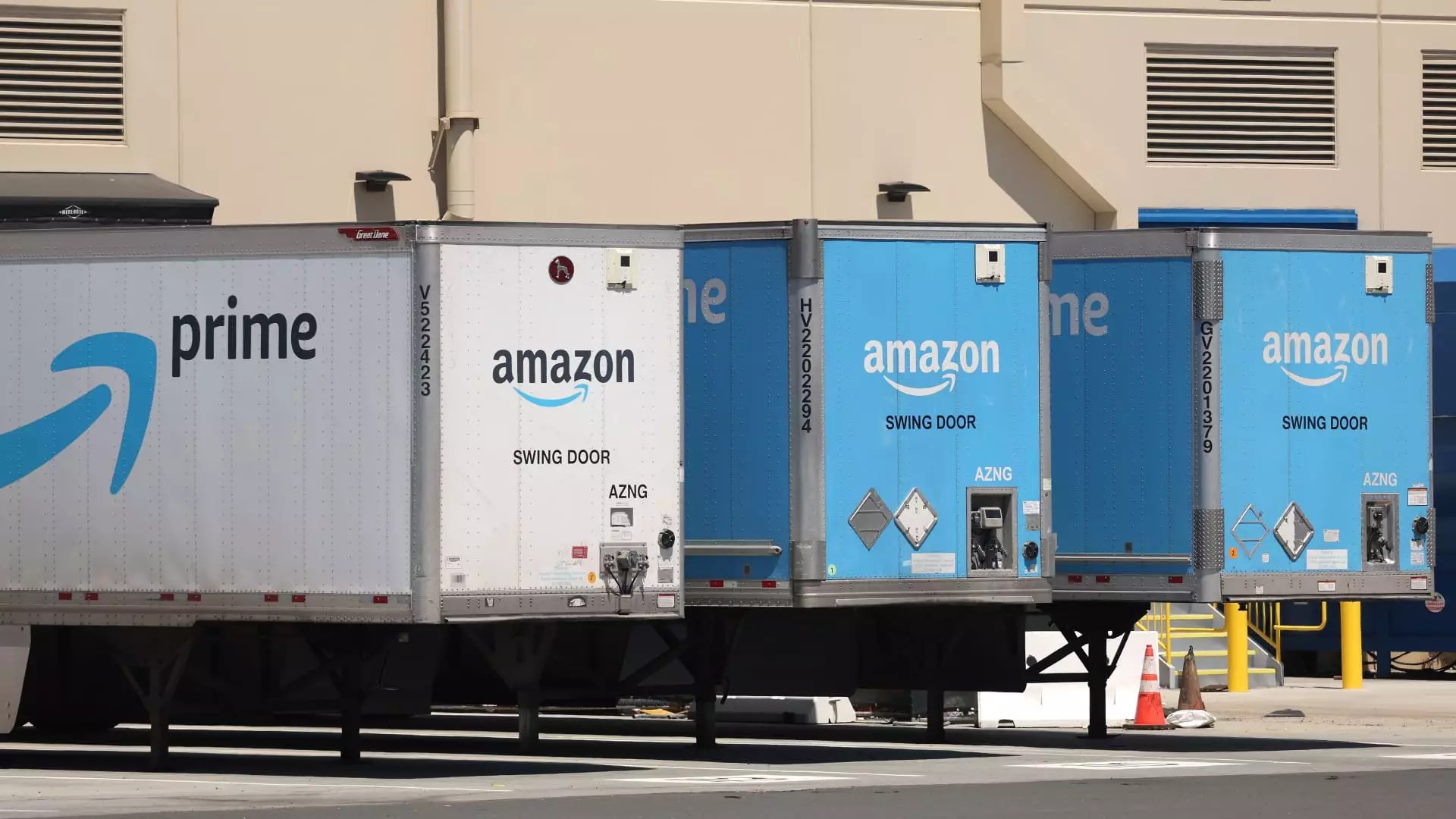The recent allegations against members of an Armenian organized crime syndicate, who reportedly swindled over $83 million from Amazon, bring to light a troubling side of the booming e-commerce industry. Operating in plain sight, these thieves masqueraded as legitimate truck drivers to pilfer a vast array of goods, from smart TVs to popular kitchen appliances. This brazen crime unveils a profound vulnerability within one of the most influential retailers in the world and raises significant questions about how society allows such felonious schemes to flourish.
The Department of Justice (DOJ) has laid bare a sordid affair where deception becomes the currency of a shadowy underworld. The criminals employed a modus operandi that capitalized on the trust inherent to logistical operations, a factor that renders their confession not just shocking but painfully indicative of systemic weaknesses. With cargo theft losses currently estimated to approach $1 billion annually, this isn’t just a problem for Amazon; it’s a wake-up call for all businesses reliant on secure supply chains and the integrity of e-commerce platforms.
The Growing Epidemic of Cargo Theft
As we dive deeper into this narrative, it becomes evident that the crime doesn’t merely disrupt corporate operations; it has far-reaching implications for consumers and legitimate businesses alike. E-commerce has catalyzed a new retail era where convenience is king. However, this ease of transaction and speed of delivery are paralleled by a sinister underbelly where criminal organizations exploit vulnerabilities for profit. It’s an unsettling commentary on the dark side of modern commerce, revealing the fragility of trust in a system designed to be as seamless as possible.
Many might question how entities such as Amazon, with its extensive resources and technological prowess, could allow these thefts to go unnoticed for such a prolonged period. Surely, one would expect a company of Amazon’s stature to possess sophisticated surveillance and tracking systems. Yet, the facts suggest that even giants can fall prey to lapses in their security frameworks when criminals appear to be one step ahead. The use of imperfect mechanisms—like the Amazon Relay application that connects truckers with freight—can inadvertently open gateways for exploitation.
Societal Implications and Responsibilities
What’s particularly disheartening is the moral message this crime sends. It showcases a reality where theft has become so commonplace that it’s almost normalized within certain circles. When criminals can manipulate a system that the average consumer assumes is secure, it quickly erodes public trust. Moreover, the moral gray area surrounding the involvement of innocent third-party sellers, who may unknowingly find themselves tangled in these illegal activities, underscores the complexities of our contemporary economy. These naive sellers are not just victims of a crime—they are collateral damage in a broader war against legitimate commerce.
Another critical layer of this issue is the chilling connection between organized crime and other heinous activities, including attempted murder and illegal firearm possession. The interplay between these criminal acts illustrates that cargo theft is merely one aspect of a far larger enterprise, one that poses significant challenges to law enforcement and society at large. When crimes become interlinked in this way, the question arises: how can we discern who is merely an unfortunate participant and who is fully complicit?
This situation demands urgent scrutiny not only on the part of law enforcement but also from the e-commerce giants and stakeholders involved in online marketplaces. Initiatives to better protect vulnerable sectors from criminal exploitation need to be a priority. If corporations don’t take proactive steps to reinforce their operational frameworks, the cycle of crime and collateral damage will inevitably repeat itself.
The Need for Collective Action
To counteract the growing epidemic of cargo theft, there is a pressing need for industry-wide reforms and innovations. Amazon has already taken initial steps to combat fraudulent activities, suspending dozens of merchants tied to stolen goods. However, these moves must be complemented by an overarching strategy that addresses potential vulnerabilities within the supply chain and enhances communication protocols between carriers and retailers.
Ultimately, combating this malaise will require collaboration among businesses, policy-makers, and community stakeholders. Until then, we must grapple with the unsettling reality of a landscape where millions of dollars disappear into the hands of criminals, and consumers unknowingly contribute to a cycle that undermines integrity in commerce. It is incumbent upon us to demand accountability and action in an age where the price of convenience can come at a steep and rising cost.


Leave a Reply